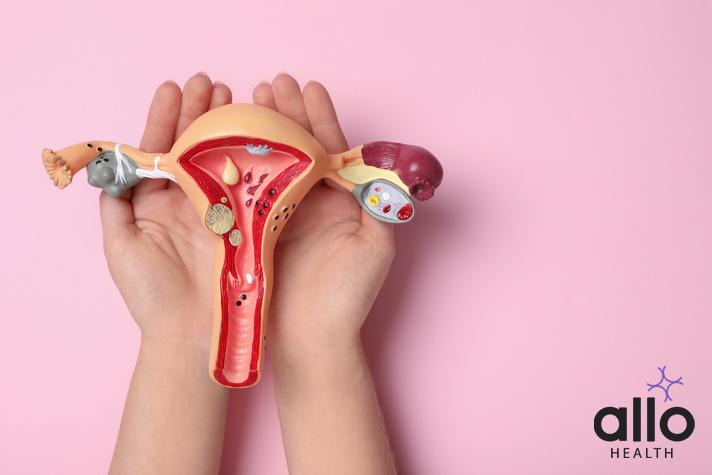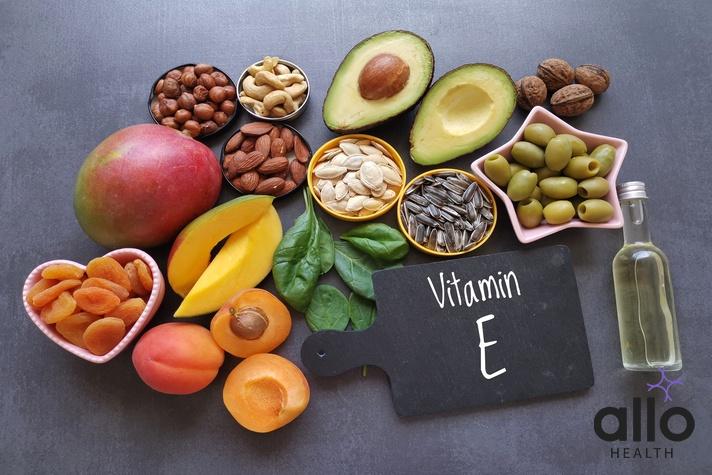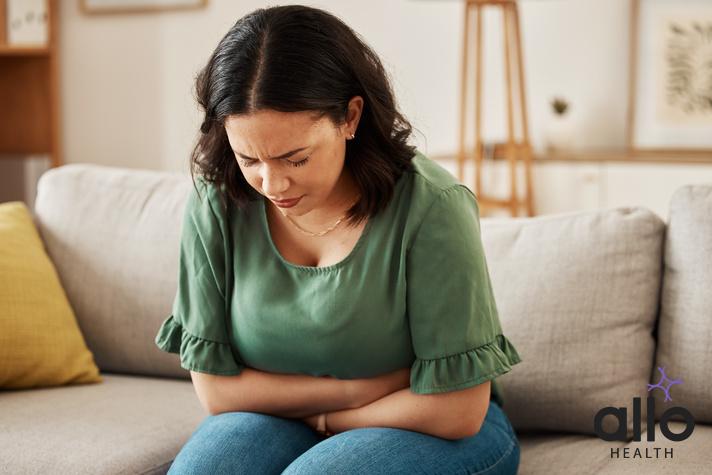How to Clean Uterus During Periods Naturally?

Allo Health is dedicated to personalized well-being, offering support and trusted information tailored to individual health goals. The platform emphasizes human-generated content, led by a distinguished medical team of experts, including physicians and sexual health specialists. Their commitment to credibility involves rigorous fact-checking, authoritative research, and continuous updates to ensure accurate, up-to-date information. Allo Health's unique approach goes beyond conventional platforms, providing expert-led insights and a continuous commitment to excellence, with user feedback playing a crucial role in shaping the platform's authoritative voice.

Dr. Warisha holds an MBBS degree from GMERS Medical College, Ahmedabad. She has an in depth experience on sexual and reproductive health and rights.
Why This Was Upated?
Our experts continually monitor the health and wellness space, and we update our articles when new information became available.
Updated on 20 December, 2023
- Article was updated as part of our commitment to diversity, equity, and inclusion.

"The following blog article provides general information and insights on various topics. However, it is important to note that the information presented is not intended as professional advice in any specific field or area. The content of this blog is for general educational and informational purposes only.
Book consultation
The content should not be interpreted as endorsement, recommendation, or guarantee of any product, service, or information mentioned. Readers are solely responsible for the decisions and actions they take based on the information provided in this blog. It is essential to exercise individual judgment, critical thinking, and personal responsibility when applying or implementing any information or suggestions discussed in the blog."
Maintaining uterine health is crucial, especially during menstrual cycles. Here are ways to support your uterus during periods, focusing on getting regular menstrual cycle to clean the uterus naturally and improving overall menstrual health.
What is Menstrual Cycle?
The menstrual cycle is a regular natural process that occurs in the female reproductive system. It is essential for the production of eggs and the preparation of the uterus for pregnancy.
- Menstrual Flow: The cycle is marked by the menstrual flow, which includes shedding of the uterine lining and menstrual blood clots. Proper blood circulation is vital for a healthy flow and reducing the risk of clots.
- Uterine Health: The health of the uterus is central to the menstrual cycle. It involves changes in the uterine lining, preparing it each month for the potential of pregnancy.
- Menstrual Bleeding: This is the shedding of the uterine lining, which occurs when pregnancy does not happen. The bleeding can range from light to heavy, and its nature can indicate various health conditions.
- Cycle Irregularities: Regularity in the menstrual cycle is a sign of good reproductive health. Irregularities might indicate health concerns and should be checked by a healthcare professional.
- Hormonal Influence: Hormones play a crucial role in regulating the menstrual cycle, influencing aspects like the thickness of the uterine lining and the timing of menstrual bleeding.
- Menstrual Cycle Phases: The cycle is divided into phases – menstrual, follicular, ovulation, and luteal – each playing a vital role in fertility and menstrual health.
Understanding the menstrual cycle is key to recognizing normal patterns and identifying when there might be health concerns that require attention. Regular check-ups and being aware of one’s cycle can aid in maintaining overall reproductive health.
Importance of Cleaning Uterus During Periods
Cleaning the uterus during periods, often referred to as the natural process of menstrual flow, is crucial for several reasons:
- For Removal of Endometrial Lining: Each menstrual cycle prepares the uterus for potential pregnancy. If pregnancy doesn’t occur, the thickened endometrial lining (built up to potentially nurture a fertilized egg) is not needed and thus shed, resulting in menstrual bleeding. This natural cleaning is vital for reproductive health.
- Prevention of Infection: Regular menstrual flow helps in preventing the accumulation of blood and tissue inside the uterus, which could otherwise lead to infections or health complications.
- For Fertility Maintenance: Regular and healthy menstrual cycles are often indicators of good reproductive health. The process of cleaning the uterus is important for maintaining fertility.
- Hormonal Balance: Menstruation is part of the hormonal cycle that regulates many aspects of women’s health, not just fertility. Regular periods help in maintaining hormonal balance.
- Health Indicators: The regularity, duration, and nature of menstrual flow can serve as indicators of overall health. Changes in the menstrual cycle can signal health concerns that may need medical attention.
- Detoxification: The process of menstruation is sometimes viewed as a natural detoxification process for the body, eliminating not just the endometrial lining but also toxins and waste products.
- Psychological Well-being: For many, the regular occurrence of a menstrual cycle can be a sign of normalcy and health, contributing to psychological well-being.
Note: It’s important to note that the cleaning of the uterus during periods is a natural biological process, and the body manages it on its own. External intervention for cleaning the uterus is not necessary and can be harmful unless medically advised for specific health conditions.
How to Clean Uterus During Periods Naturally

Cleaning the uterus naturally during periods involves adopting practices that support the body’s natural processes in managing menstrual flow and maintaining overall uterine health. Here are some ways to do so:
- Stay Hydrated: Drinking plenty of water helps in flushing out toxins and can aid in reducing menstrual flow irregularities.
- Eat Balanced Diet: Consuming a diet rich in fruits, vegetables, and whole grains can provide essential nutrients to support the body’s natural cleansing processes.
- Do Regular Exercise: Light to moderate exercise during your period can improve blood circulation, which aids in the natural cleaning process of the uterus.
- Apply Heat Therapy: Applying a heat pack to your lower abdomen can help in relaxing uterine muscles, reducing cramps, and promoting a smoother menstrual flow.
- Apply Ice Pack and Do Massages: For uterine pain or abdominal pain, consider natural pain relief methods like an ice pack or gentle abdominal massages.
- Take Adequate Rest: Ensuring enough sleep and rest during your period supports your body’s natural healing and cleaning processes.
- Limiting Processed Foods and Sugar: Reducing intake of processed foods and sugar can help in maintaining hormonal balance and overall uterine health.
- Drink Herbal Teas: Certain herbal teas, like ginger or raspberry leaf, may help in reducing inflammation and supporting uterine health.
Note: Remember, these are general wellness tips and should not replace medical advice. If you experience any unusual symptoms or severe discomfort during your periods, it’s important to consult with a healthcare professional.
When to Seek Medical Advice

Seeking medical advice is crucial when natural methods aren’t enough for maintaining uterine health during periods. Here are key situations when you should consult a healthcare professional:
- Experience Excessive or Continuous Bleeding: If you experience unusually heavy bleeding (heavy enough to soak through one or more sanitary pads or tampons every hour for several hours) or bleeding that lasts longer than a week, it’s important to see a doctor.
- Get Severe Pain: While some discomfort during periods is normal, intense or debilitating pain could indicate an underlying concern that requires medical attention.
- Get Irregular Menstrual Cycle: If your menstrual cycle is consistently irregular or if you miss periods, it’s a sign to consult a healthcare provider.
- Unusual Menstrual Blood: Large blood clots, a significant increase in menstrual clots, or menstrual blood with an unusual color or consistency can be cause for concern.
- Have Symptoms of Anemia: Excessive blood loss can lead to anemia, characterized by symptoms such as fatigue, weakness, and paleness. If you suspect anemia, it’s important to seek medical advice.
- No Improvement with Natural Methods: If natural methods aren’t helping with menstrual concerns like heavy bleeding or severe cramps, professional medical advice can offer alternative solutions.
- Have History of Health Conditions: Women with a history of reproductive health concerns, such as fibroids, endometriosis, or a history of missed miscarriages, should consult their doctor for personalized advice.
- Get Side Effects of Medications: If you’re on medication for menstrual concerns and experience adverse effects, a doctor can adjust your treatment.
Remember, while natural methods can be effective for many, they are not a substitute for professional medical advice, especially in cases of severe symptoms or underlying health conditions.
Conclusion
Happy periods and a healthy cycle are achievable with natural methods. However, understanding when to integrate conventional medicine therapy is crucial for overall health. Regular uterus health checkups are recommended to monitor any health concerns and ensure a healthy reproductive system.
Most Asked Questions
-
What natural methods can I use to reduce heavy bleeding during my period?
To naturally manage heavy menstrual bleeding, focus on maintaining a balanced diet rich in Vitamin C and leafy greens, which promote healthy blood flow. Regular light exercise can also improve circulation. Additionally, stress reduction techniques can help in managing blood flow during your cycle.
-
Can certain foods improve my menstrual health?
Yes, certain foods can positively impact your menstrual health. Foods high in Vitamin C, like citrus fruits, and leafy vegetables, are beneficial for blood circulation and overall uterine health. Incorporating these into your diet can help in maintaining a healthier menstrual flow and reducing cramps.
-
How can I naturally relieve menstrual cramps and uterine pain?
For natural relief from menstrual cramps and uterine pain, consider using an ice pack on your lower abdomen. Gentle abdominal massages can also help in reducing discomfort. Engaging in activities that release happy hormones, like light exercise or hobbies you enjoy, can also alleviate menstrual pain.
-
When should I seek medical advice for menstrual concerns?
If you experience continuous or excessive bleeding, significant changes in your menstrual blood (like unusual clots or brown blood), or any other menstrual side effects that concern you, it’s important to consult a healthcare professional. They can provide guidance on whether your symptoms are normal or if they require further medical investigation or treatment.






































